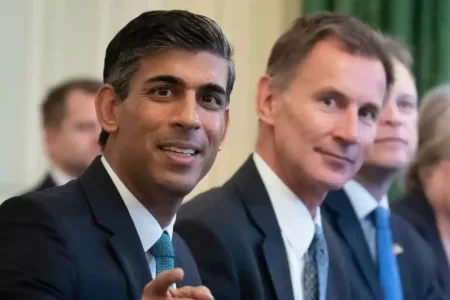The Institute for Fiscal Studies (IFS) has cautioned against implementing tax cuts in the upcoming Budget unless the government can provide clear details on how they will be funded.
The warning comes amidst hints from Chancellor Jeremy Hunt about potential tax reductions, with the possibility of this being the last Budget before a general election.
The IFS emphasized that the economic case for tax cuts is weak, particularly given the current trajectory of government debt and spending. They highlighted concerns about record-high tax levels relative to the size of the economy, coupled with rising government debt that is barely projected to decline in the coming years.
Moreover, the IFS raised doubts about the feasibility of proposed spending cuts and tax increases outlined by the government, suggesting that they may not materialize as expected. In light of these challenges, the IFS recommended delaying tax cuts until a detailed spending review can be conducted.
While acknowledging the potential for tax cuts to stimulate economic growth, the IFS proposed focusing on reforming taxes such as stamp duty on property and shares, which could have a more significant positive impact on growth compared to reducing income tax or National Insurance rates.
The suggestion of tax cuts has also drawn criticism from other organizations, including the Office for Budget Responsibility (OBR) and the International Monetary Fund (IMF), further underscoring the complexities surrounding fiscal policy decisions.
The Treasury responded by emphasizing its commitment to meeting fiscal rules and increasing departmental spending over the long term, particularly in areas like healthcare. However, the IFS cautioned that any perceived “headroom” in the Budget could be influenced by volatile factors such as interest payments on government debt.
As the government prepares for the Budget, the debate over tax cuts underscores the delicate balance between stimulating economic growth and maintaining fiscal responsibility in a challenging economic environment.
